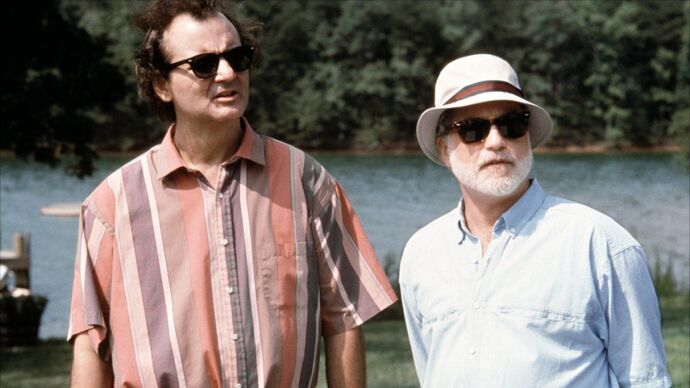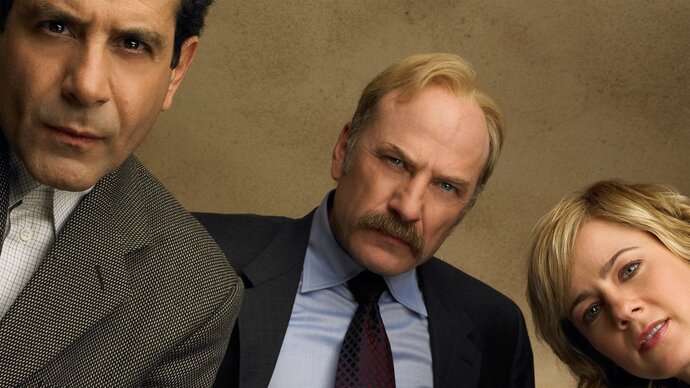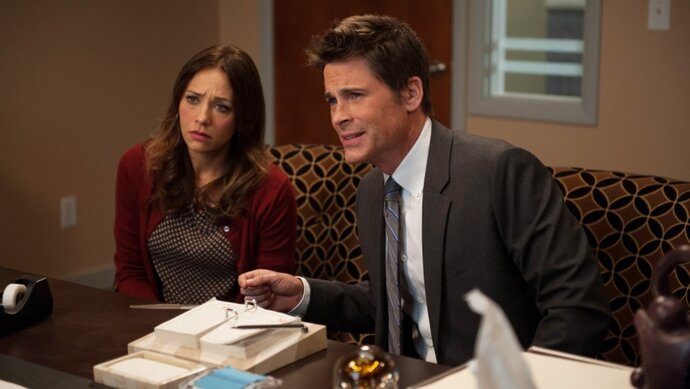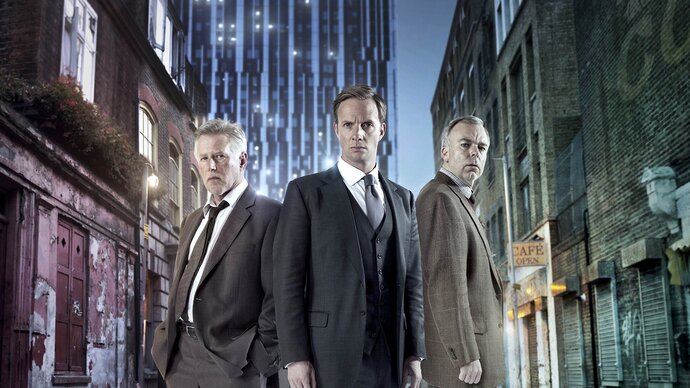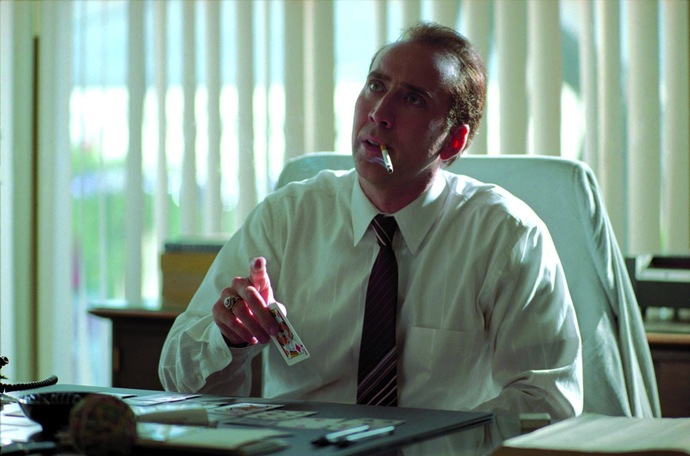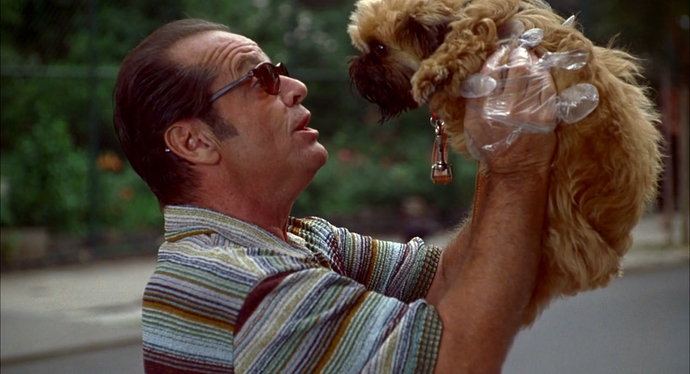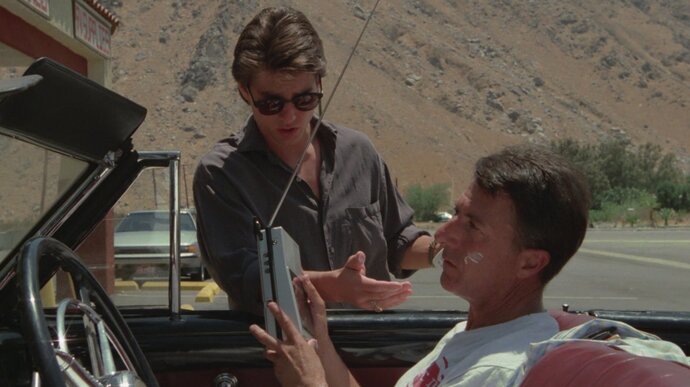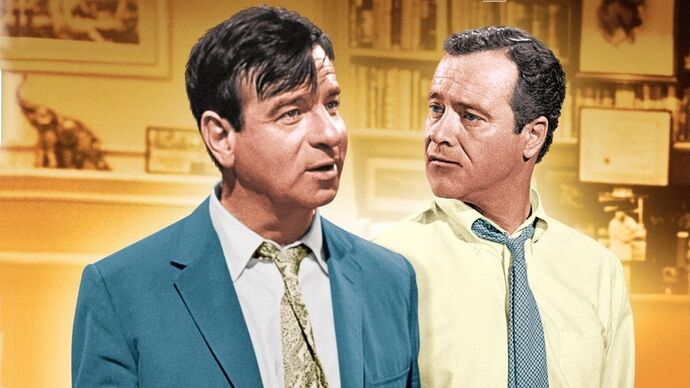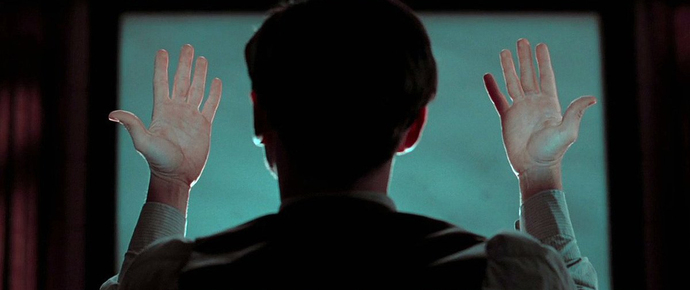Obsessive-compulsive disorder is a demanding condition that comes under the umbrella of anxiety disorders. It’s more than just a tendency or a personality—it’s an all-consuming illness without escape. Here are some of the best movies and TV shows that depict the realities of OCD and how it can affect one’s everyday life, yet also shine light on the fact that people are more than just their illnesses.
10. What About Bob (1991)
Bob (Bill Murray) has a whole list of fears that make it hard for him to leave the house: agoraphobia, hypochondria, germaphobia, etc. All of this lands Bob in a constant state of panic, requiring constant reassurance from his therapist(s) who eventually tire of him. Apart from his doctor and his ex-wife, most people actually like Bob for his pleasant nature—but the fact that everyone loves Bob makes Dr. Leo Marvin (Richard Dreyfuss) hate him even more. On top of all this, Bob has OCD. He spends ages pacing the room before he finally leaves, he uses a tissue to turn doorknobs. If What About Bob wasn’t a lighthearted comedy, we’d be seriously concerned.
9. Monk (2002–2009)
TV detectives are often neurodivergent oddballs—think Sherlock Holmes in BBC’s Sherlock or Rustin Cole in HBO’s True Detective. Their lack of social skills is often what leaves more room in their brains for logical, crime-solving thinking. And just as Scotland Yard calls upon Sherlock when they’re in a sticky spot, the San Francisco Police Department reaches out to Adrian Monk (Tony Shalhoub) when they’re hit with a criminal curveball. After many years bound at home due to his OCD, Monk steps out to become a private detective even as he’s still hindered by his list of phobias: milk, heights, lightning, mushrooms, elevators, crowds, etc. Leaving Monk alone in a room for 10 minutes is frustrating enough to watch; we can’t imagine what it must be like to actually live with OCD.
8. Parks and Recreation (2009–2015)
Chris Traeger is never explicitly diagnosed with OCD in Parks and Recreation, but he’s certainly one of the most anxious, health-obsessed characters we’ve seen on TV. Originally intended as a guest appearance, Chris’s infectious (and sometimes annoying) optimism and hectic personality left fans wanting more. So, Greg Daniels and Michael Schur kept him around. Despite the stash of vitamins on his desk and his determination to cycle away his depression, Chris’s health ironically takes a beating from his frantic obsessive-compulsive needs. Filmed in mockumentary style, Chris once tells the audience that his anxiety kept him up for 50 straight hours. That’s not good for anyone, least of all someone who plans to be the first person to live to 150!
7. Whitechapel (2009–2013)
Another OCD police detective here, this time in London. If you’re thinking Jack the Ripper, you’re a little off—this BBC drama takes place later in the timeline than that. Set in modern-day times, Whitechapel focuses on copycat crimes—most notably those of Jack the Ripper and the Kray twins. Detective Inspector Joseph Chandler (Rupert Penry-Jones) is exceptionally clean for a man in such a grim career. With his hardy, no-nonsense partner Ray (Phil Davis), they deal with gruesome cases of history repeating itself. Chandler’s disorder is a bit more subtle than Monk’s OCD in Monk, but when stress levels start to climb, it becomes unmanageable—and Chandler turns to alcohol to numb it all.
6. Matchstick Men (2003)
Based on Eric Garcia’s 2002 novel, Matchstick Men follows a pair of con artists in Los Angeles, with Roy (Nicolas Cage) as leader and brains of the operation—despite lacking any nuance or emotional stability. Roy has both OCD and Tourette syndrome, which his protege (Sam Rockwell) suggests he find help for after an intense panic attack. There, he discovers his estranged teenage daughter who restores his zest for life. It sounds pretty heavy, but Matchstick Men is actually a breezy-yet-absorbing watch, with director Ridley Scott showing us how an OCD diagnosis doesn’t mean the end of everything. Some readers of the original book condemned Scott for turning its cynicism into sentimentality, but we think it perfectly matches Roy’s character, charming his victims in.
5. As Good as It Gets (1997)
As Good as It Gets is one of the few films to win Academy Awards for both Best Leading Actor and Best Leading Actress, the former going to Jack Nicholson for his portrayal of a New York romance novelist with OCD. Although his job it to write about people, he’s not the best at dealing with them. In fact, only one waitress will serve him at the only cafe his OCD will allow him to visit: Carol (Helen Hunt). One common symptom of obsessive-compulsive disorder is the need to maintain routine. Many people who suffer with OCD find change difficult to deal with, no matter how small that change might be. Despite his tough exterior, Jack Nicholson’s Melvin suffers in this way. He forms an attachment to the neighbor’s dog he begrudgingly cares for, and he melts down when Carol leaves her job. However, director James L. Brooks forces his bigoted protagonist to embrace newness and live with his disorder, not be ruled by it.
4. Rain Man (1988)
Raymond Babbitt (Dustin Hoffman) has autism and savant syndrome and is cared for in a mental institution—at least, until his selfish older brother (Tom Cruise) uproots him for his own benefit. Ray often has breakdowns caused by the slightest of things, like being touched on the arm or missing his favorite TV show. Ray also has OCD, which is never explicitly said, but that’s mostly because Ray’s autism seems to overshadow everything else. Ray is cinema’s best-known autistic character, but experts have also pointed out his textbook OCD behaviors, like having to eat cheese balls with a toothpick. He also has to rearrange the hotel furniture to match his home institution every time, showing just how deep his compulsion for sameness and routine actually runs. But Barry Levinson’s drama isn’t about teaching Ray to accept change; rather, it’s about teaching his brother to accept him.
3. The Odd Couple (1968)
Neil Simon turned his 1965 play into a movie script, brought to life by director Gene Saks in 1968. The Odd Couple was a commercial success that led to a sitcom (1970), a sequel (1998) and a remake (2015), with each one continuously referenced in pop culture. Played by Jack Lemmon and Walter Matthau, the odd couple of Felix and Oscar share one thing in common: they’re divorced. After moving in together, they quickly find that their lifestyles clash. It’s not just a case of Felix being neat and Oscar being messy; Felix actually has OCD and Oscar is a complete slob. OCD is, at its core, an anxiety disorder. Living with Oscar means Felix has lots of anxiety and he expresses that anxiety in many ways, not just tidying up (which, admittedly, he does a lot). While Felix is never formally diagnosed in the film or TV show, experts have analyzed and suggested that Felix does indeed suffer with OCD as exhibited by his powerlessness against compulsive cleaning.
2. Pure (2019)
Many viewers commended Pure’s realistic and sensitive depiction of OCD, which comes from the fact that its creator, Rose Cartwright, wrote it all from personal experience. Originally a book titled Pure, Channel 4 adapted Cartwright’s memoirs into a limited TV series back in 2019, which was then made available on HBO Max (until the merger started wiping the library). Cartwright’s penning of her story and subsequent permission for adaptation was courageous, to say the least, as she deals with a very specific type of OCD that’s easily misunderstood. Essentially, Pure is about a woman (played by Charly Clive) who has intrusive thoughts about sex. No matter how inappropriate and degrading those thoughts are, they simply won’t stop. Pure gives room to voices we didn’t even realize needed hearing, subverting stereotypes surrounding mental health. Pure fans who also suffer with OCD and intrusive thoughts have found a relatability in this show like none other.
1. The Aviator (2004)
If you’ve only read Howard Hughes’s Wikipedia bio, you wouldn’t think he suffered with crippling mental health issues. The immensely successful billionaire ticked every box imaginable: filmmaker, aviator, businessman, philanthropist, record-breaker, and more. Although his OCD was initially manageable when he first pursued those enterprises, the illness eventually got the better of him, to the point where he’d locked himself in a dark room for four straight months. Martin Scorsese tells Hughes’s unbelievable story in his epic period drama The Aviator. Leonardo DiCaprio stars as the troubled man, scrubbing his hands bloody, peeing in bottles, and repeating the same words over and over. As far as Hollywood biopics go, The Aviator is fairly accurate, which only makes his life-destroying compulsions all that much sadder. Read next: The Best Movies Where Protagonists Have Mental Breakdowns
